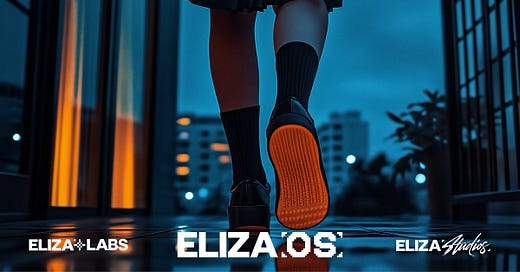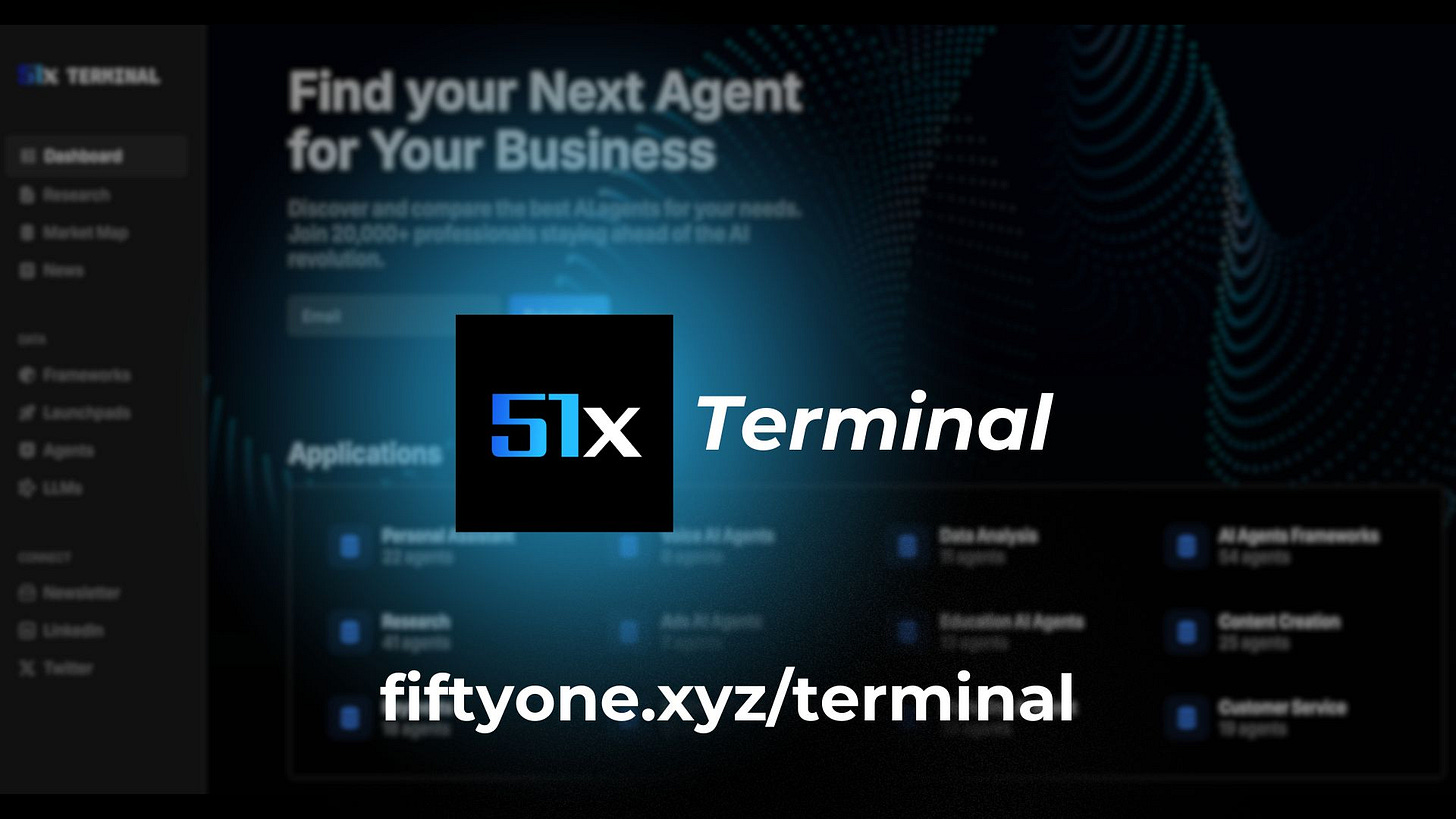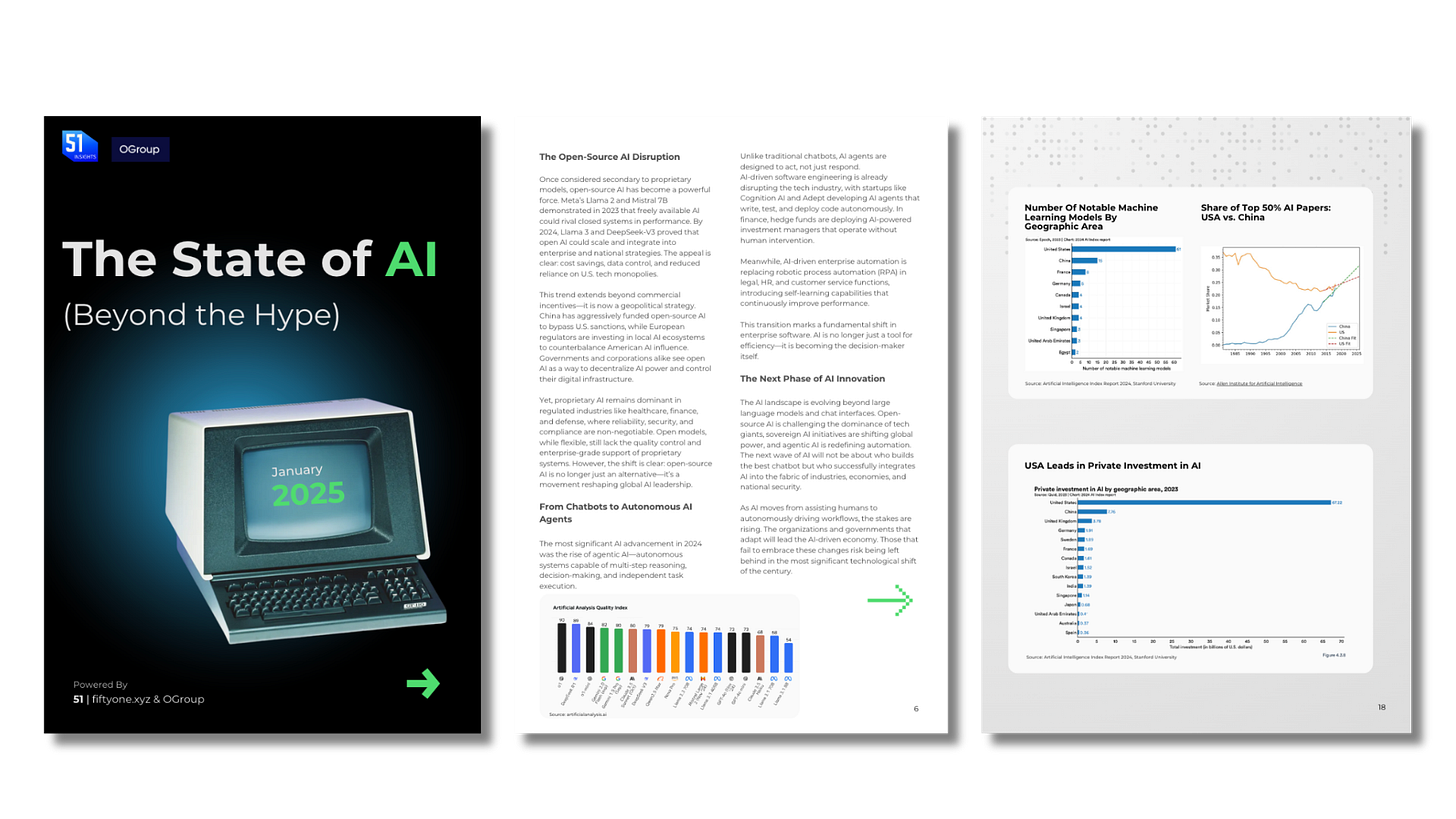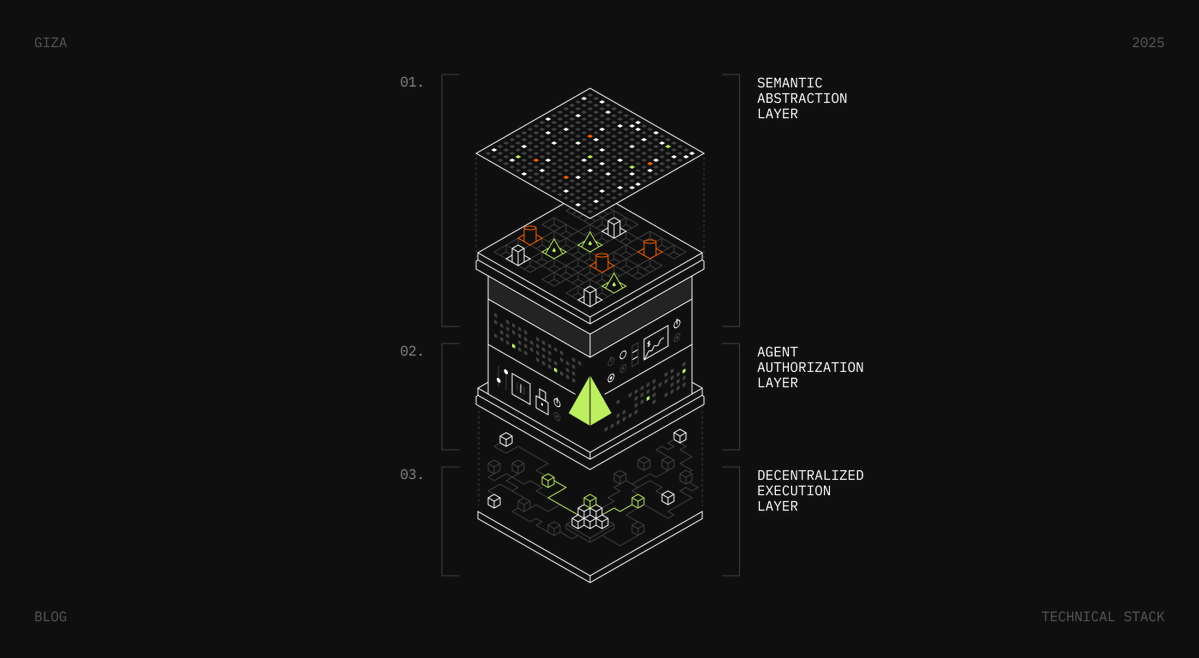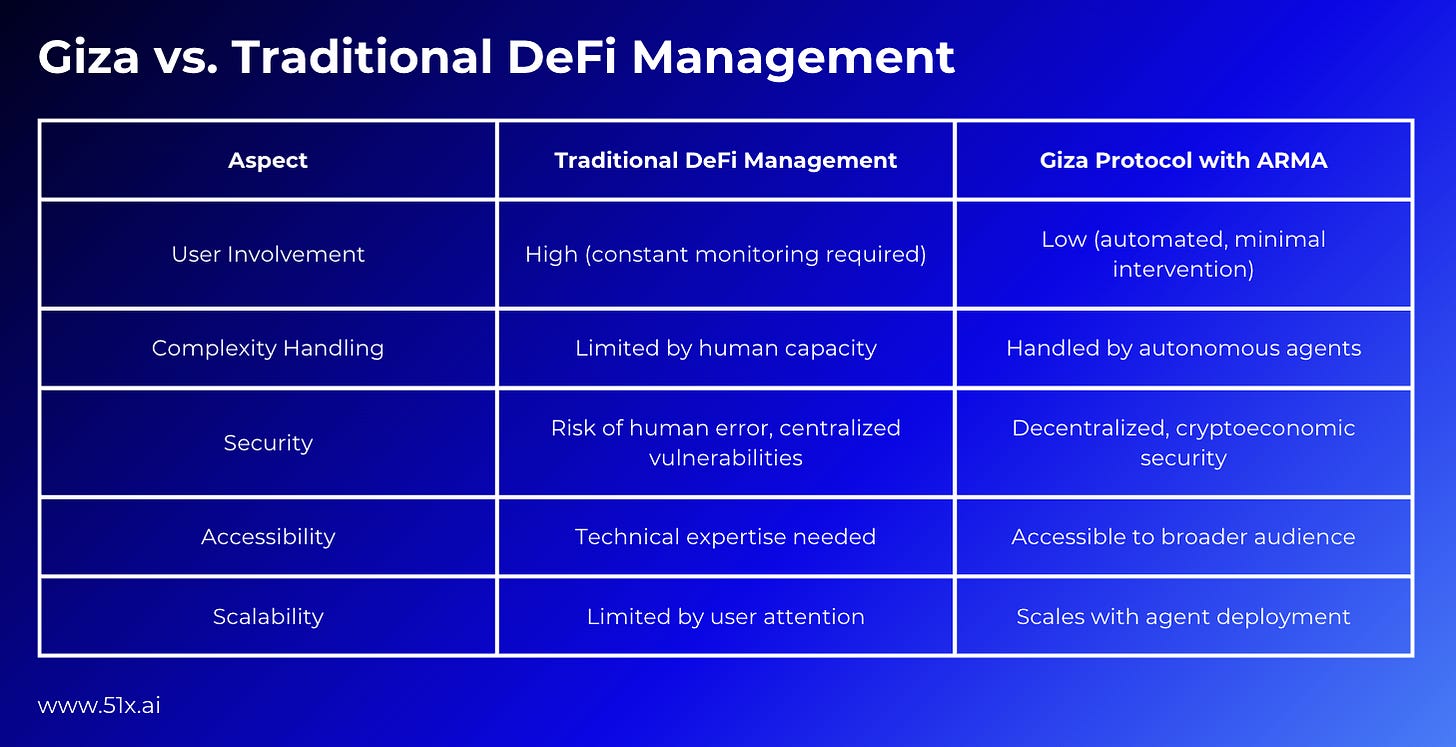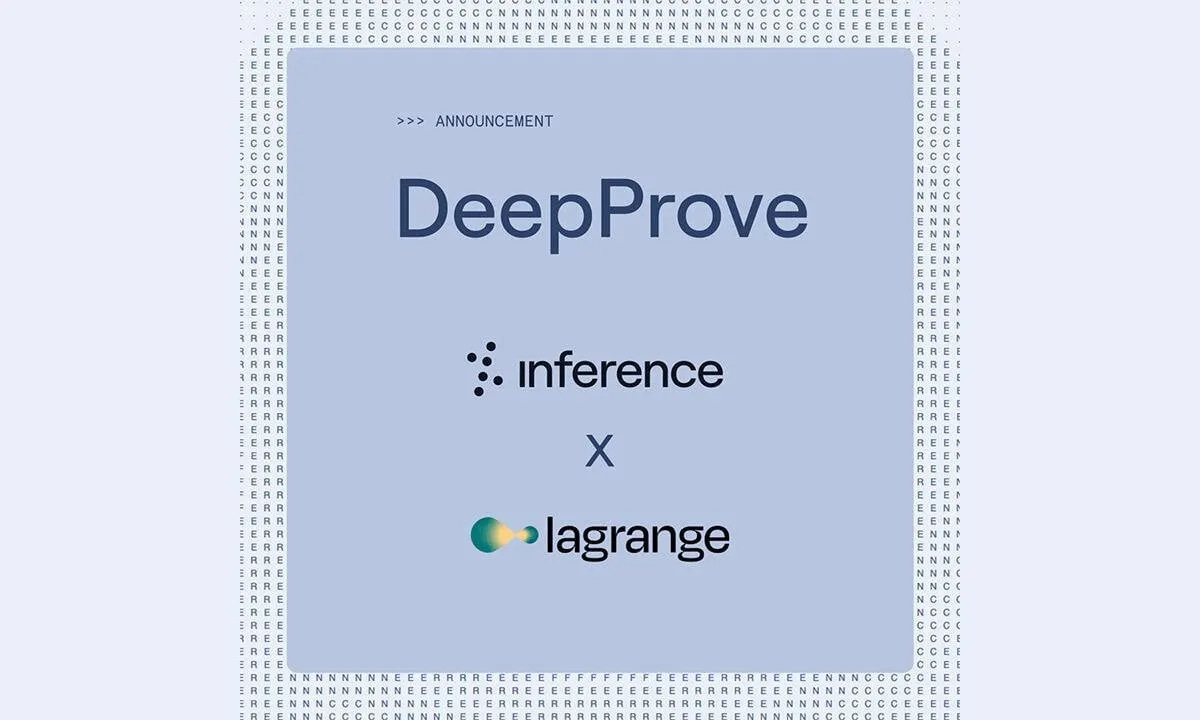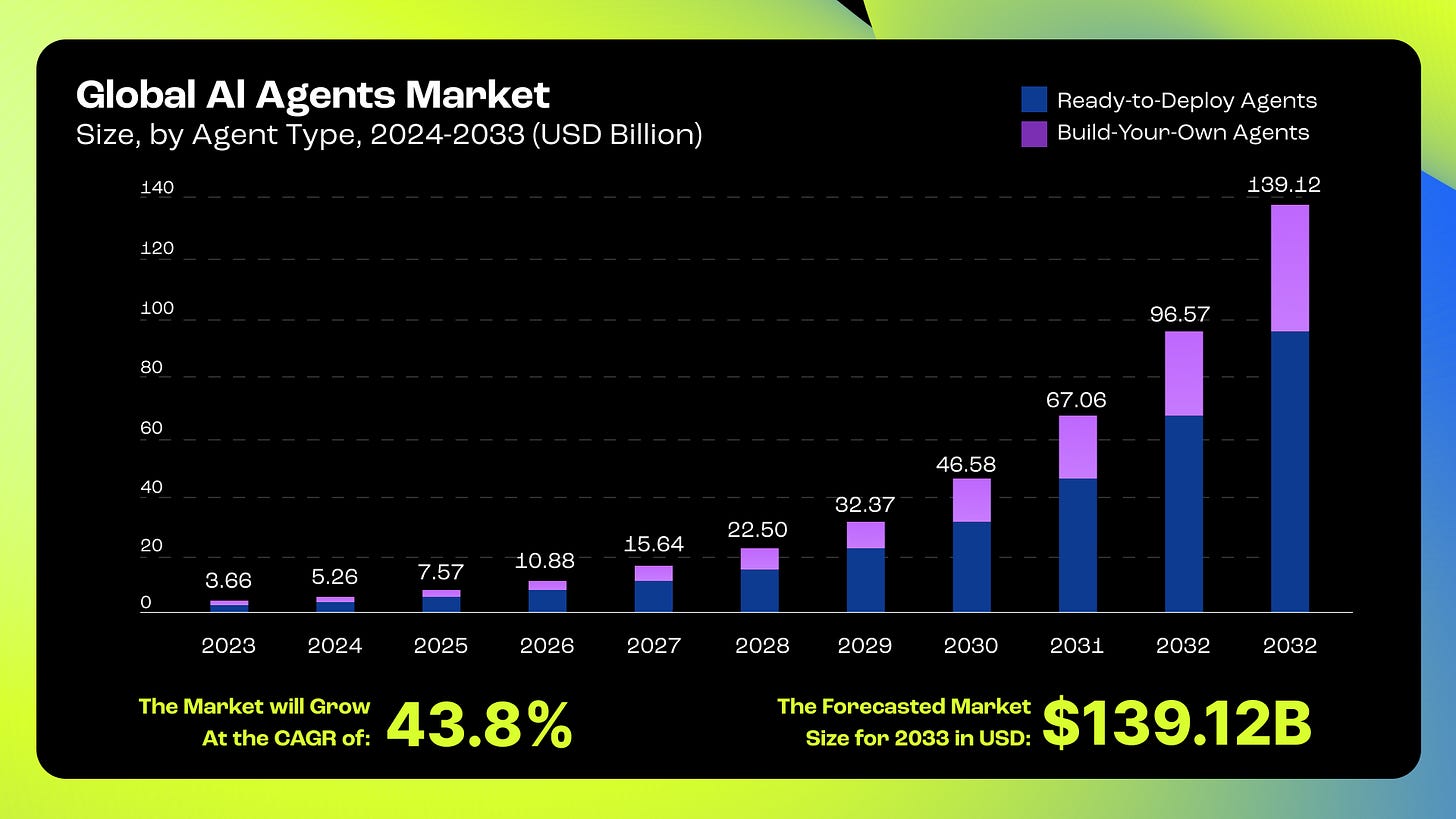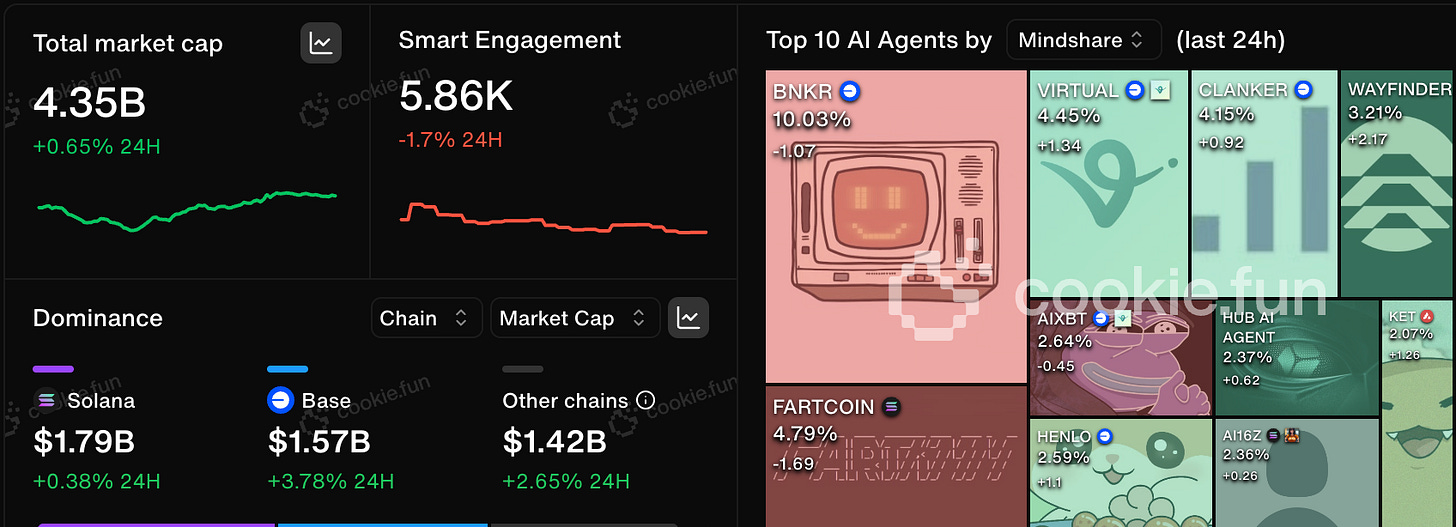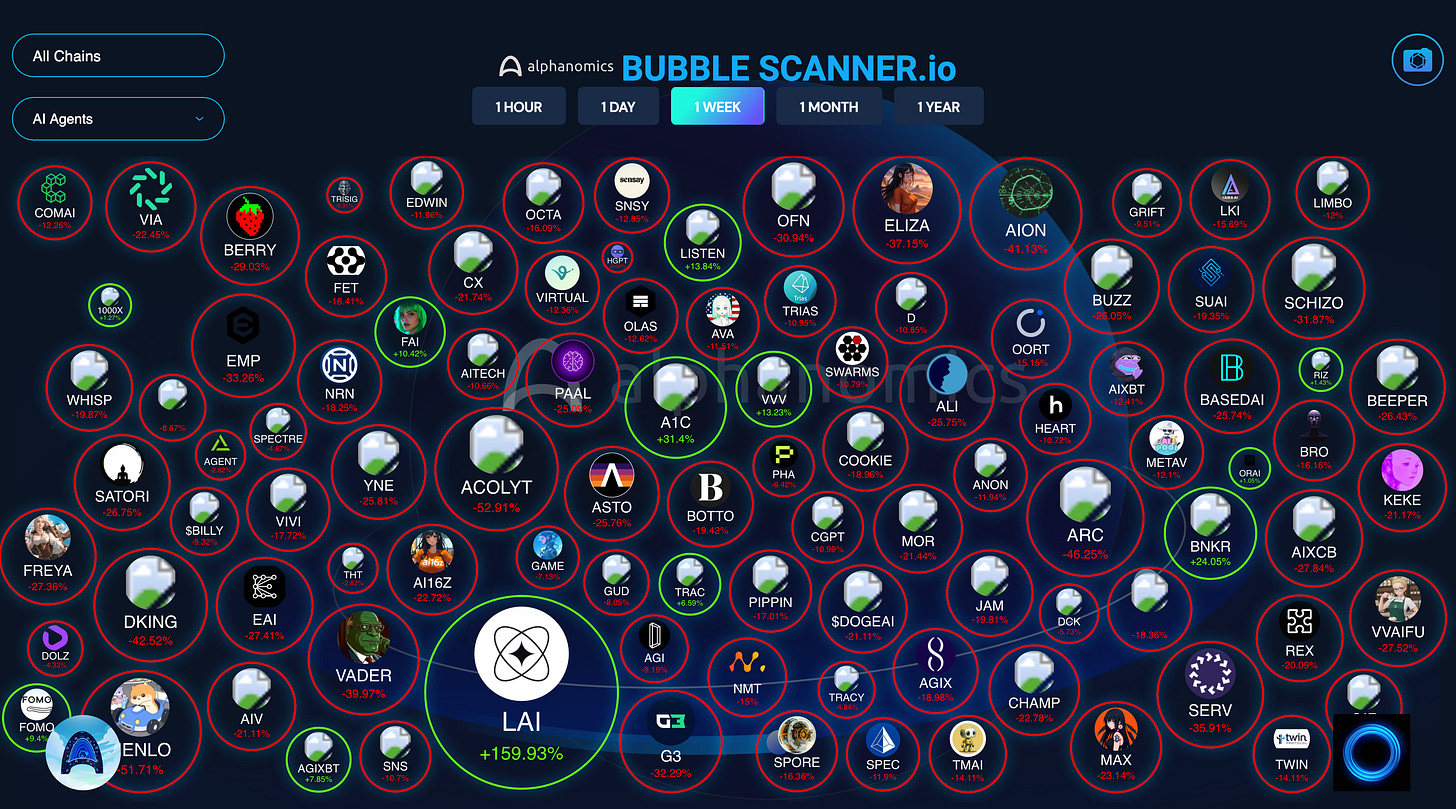Hi, it’s Marc.
Welcome to +265 new readers since our last update. Today, we cover:
ElizaOS’s Rebranding
Agent-based DeFi Automation
DeepProve’s New AI Standard
Top AI Agents
Top Reads
Alpha
Let’s jump in.
The Ultimate AI Agent Intelligence Platform
Discover, compare, and track AI vendors in real time — powered by research and data, not hype. Join the waitlist for exclusive early access 👉
ElizaOS’s Rebranding
ElizaOS has shared its overview and reintroduced itself as an “operating system for AI agents.”
Its focus? Agentic intelligence within a decentralized ecosystem.
ElizaOS operates on the Solana blockchain and consists of three interconnected pillars:
The Eliza Framework: A TypeScript-powered, open-source toolkit for building AI agents.
Boasts significant community traction with over 14.9K GitHub stars, 4.8K forks, 500+ contributors, and 100+ plugins.
AI-Enhanced Governance: Provides AI-native tools to enhance Decentralized Autonomous Organizations (DAOs), enabling autonomous agents to manage funds, coordinate resources, onboard contributors, and organize efforts involving both humans and AI.
Eliza Labs: The research and development arm driving innovation with projects like:
Eliza v2: A modular upgrade with improved AI integration and scalable multi-agent collaboration.
Global trust marketplace: A social trading platform using AI-driven reputation scoring and decentralized execution.
AI-powered token launchpad: A no-code platform for launching tokens with AI-enhanced tools.
DegenSpartanAI: A crypto-focused AI trading agent blending sentiment analysis and automated strategies.
Eliza Studios: A creative studio combining AI, art, and interactive digital experiences.
Additionally, the AI16Z token supports the ecosystem by funding research, rewarding developers, and backing open-source projects, with future plans for staking, liquidity pools, and autonomous trading agents.
Stepping back: ElizaOS emerged from a rebranding initiative of the AI DAO, ai16z.
October 2024: ai16z launched as a nod to a16z, aiming to raise $75K for an autonomous investor but quickly expanded in AI and crypto.
January 2025: Eliza Labs introduced ElizaOS, an open-source AI agent platform on Solana. And, ai16z rebranded to ElizaOS.
March 2025: ElizaOS reintroduction.
Key features:
Each agent within the ElizaOS ecosystem operates within a runtime environment, maintaining consistent behavior and memory across interactions.
ElizaOS deploys AI agents seamlessly across platforms, cutting costs while improving response times.
Enterprise use cases: ElizaOS's modular architecture provides significant advantages for enterprise deployment compared to monolithic AI systems.
ElizaOS enables AI agents to handle customer inquiries across multiple platforms while maintaining a consistent brand voice. Its plugin-based architecture ensures smooth transitions between AI and human support, making it ideal for enterprises managing high-volume customer interactions efficiently.
It equips enterprises with AI agents that track customer sentiment, competitors, and market trends across platforms, providing real-time business intelligence.
ElizaOS converts unstructured data into insights, with Hyperbolic ensuring fast, efficient processing for enterprise-scale research.
Devil’s advocate: Solana’s speed powers ElizaOS, but large-scale AI use cases like real-time support and supply chains need heavy computation and storage.
Yet to see, how it scales.
More links on :
New Report: State of AI in 2025 – Beyond The Hype
Agent-based DeFi Automation
Giza introduced the Giza Protocol, a semantic infrastructure designed for autonomous decentralized finance (DeFi) agents.
What you should know: The protocol’s flagship product, ARMA, is an autonomous stablecoin yield optimization agent launched on the Base network to simplify DeFi interactions by automating complex financial tasks. [Check out ARMA]
The protocol has three key layers:
Semantic Abstraction Layer – Connects AI and blockchain securely using standardized interfaces like MCP.
Agent Authorization Layer – Enables non-custodial smart accounts (ERC-7579), letting users control assets while granting agent permissions.
Decentralized Execution Layer – Runs AI tasks on a secure, scalable node network with EigenLayer AVS and slashing for security.
Key Benefits:
Enhanced capital efficiency: Agents optimize investments across protocols.
Accelerated innovation: Standardized interfaces ease protocol adoption.
Improved price discovery: Agents refine market pricing.
Reduced systemic risk: Distributed strategies prevent risk concentration.
By the number: ARMA has deployed 7,000+ agents, managed $300K in assets, and executed 10,000+ autonomous transactions
DeepProve’s New AI Standard
Lagrange, a company specializing in zero-knowledge technology, has launched DeepProve, a new zkML library that makes AI inferences verifiable.
It uses zero-knowledge proofs to cryptographically verify that AI models produce correct results according to their intended functions,
What you should know: The tech delivers 158x faster proof generation and 671x faster verification, running efficiently on CPUs while supporting CNNs (Convolutional Neural Networks), MLPs (Multilayer Perceptrons), and future LLMs.
It has potential applications in healthcare, law enforcement, and military operations, enhancing trust across decentralized AI systems.
The partnership:
Lagrange and Inference Labs have partnered to integrate Lagrange’s DeepProve library into Inference Labs’ system for faster AI verification.
The partnership introduces key advancements:
Diverse testing – AI models are tested across multiple networks, uncovering vulnerabilities and improving reliability.
Standardized benchmarking – Subnet 2 provides a unified framework for fair AI model comparisons.
On-chain proof storage – AR.IO’s Permaweb ensures persistent and transparent AI verification.
Interoperable proving systems – Scales with AI growth, optimizing computational efficiency.
Real-World Impact Across AI
For developers: Secures IP, ensures compliance, and simplifies cryptography and interoperability.
For users: Guarantees AI computations run as expected without tampering.
For Web3: Enables access to decentralized AI at scale, eliminating counterparty risks.
Top AI Agents by mindshare
Some agents you want to keep an eye on:
$VIRTUAL ($416M): A framework and infrastructure designed to create, deploy, and monetize autonomous AI agents across various platforms and applications, such as gaming, entertainment, social interactions, and more.
$AI16Z ($208M): Solana-based web3 platform that employs a unique AI agent-driven VC investment model and community-driven DAO governance.
$TRAC ($198M): A decentralized knowledge-sharing protocol and blockchain-based platform that uses a Decentralized Knowledge Graph (DKG) to organize, verify, and share trusted data and knowledge assets across industries.
$FAI ( $159M): AI built with publicly available large language models (LLMs) and operates on the Base blockchain.
$AIXBT ($100M): A crypto-savvy AI that scans markets and social media to deliver trading insights and alpha opportunities.
$PAAL ($79M): Personalized, advanced AI assistants and applications, particularly for crypto investors and broader digital communities.
$ARC($58M): A modular toolkit for creating AI bots that are highly customizable, especially for crypto ecosystems.
$SWARMS ($47M): Focuses on teams of AI bots (“swarms”) that work together to tackle big challenges.
$GRIFFAIN ($41M): Creates AI tools that make AI agents smarter and more efficient, like enabling them to trade on DeFi protocols.
$ZEREBRO ($29M): Autonomous AI system designed to create, distribute, and analyze content across decentralized and social platforms like X and Instagram.
Top Reads
Crypto x AI Investment Thesis 2025. Link
Distributed Rebellion: A thesis on crypto x AI. Link
The Promise & Challenge of Crypto + AI Applications. Vitalik Buterin. Link
Building a Trustless Supercomputer for Web3 and AI. Link
Scaling DePIN is challenging. Link
Useful AI Agents. Link
Top Quotes
“The risk of underinvesting is dramatically greater than the risk of overinvesting for us here." — Sundar Pichai
“ Crypto has an apps problem. AI has a trust problem.” — Sreeram Kannan
“AI makes everyone a tech CEO, crypto makes everyone a venture capitalist.” — Balaji
“Our collaboration with Lagrange ensures that AI models can be verified in a manner that is both transparent and privacy-preserving, bridging the trust gap that has long hindered broader AI adoption.” — Ron Chan
Alpha:
Arc released litepaper.
DeepSeek R1, a leading AI model, has been integrated into a fully decentralized system using Atoma Network's compute distribution and Walrus Protocol's storage.
Navigate is building a decentralized AI platform, focusing on providing structured datasets to enhance intelligent agents, automation, and real-world AI applications, addressing the challenge of limited publicly available training data.
Masa is creating an open data ecosystem for developers and contributors while building an economy with MASA tokens. It will introduce a priority access data model in the second half of 2025.
AmbientAGI Terminal, by Ambient AGI, is an upcoming AI coding assistant designed to enhance coding with smart code generation, real-time assistance, and seamless workflow integration.
OpenKaito's Subnet 5, part of the Bittensor network, now uses advanced text-embedding models to enhance real-time applications, including KaitoAI's new plagiarism checker on its social platform, Yaps.
Sturdy brings AI-powered aggregators on Flow blockchain for optimized returns.
SWAN's platform tokenizes AI intelligence, creating tradable assets from AI prompts and persistent AI personas, distinguishing it from other platforms tokenizing abstract concepts like time or memes.
BitGPT Network proposes a "delegation economy" where AI agents and humans collaborate, using advanced cryptographic techniques like Paillier homomorphic encryption and zero-knowledge proofs to ensure privacy and data sovereignty.
Aizel Network is the first to deploy DeepSeek 671B in a secure AI computing environment, enabling faster, private, and scalable AI-powered blockchain applications. Its enterprise-grade AI services streamline automation, on-chain transactions, and DeFi optimizations.
EMC's Compute-to-Earn model leverages idle computing resources, such as gaming PCs and old laptops, to perform tasks like AI model mining and inference.
Inferium launched Inferium Forum, a platform to network, discuss cutting-edge AI models, and collaborate on projects like hackathons and open-source contributions.
Yotta Labs' whitepaper v2 introduces Yotta OS, a modular architecture for decentralized AI computing, addressing scalability, efficiency, and reliability through components like Yotta-S for model scheduling and Yotta-F for fault tolerance.
Bitte’s AI-powered chat aims to simplify DeFi by embedding AI agents into dApps, supporting wallets like MetaMask and Coinbase Wallet across blockchains such as Ethereum and Avalanche.
Rayon Labs introduced Qwen QwQ 32B Inference with 4x the context.
Partnerships:
Lagrange partnered with Inference Labs to integrate Lagrange’s DeepProve library into Inference Labs' verifiable AI stack to enhance trust and security in AI systems.
GAIB partnered with Exabits to tokenize GPU compute power, allowing investors to own stakes in AI infrastructure and earn yields.
That’s it for now.
– Marc & team


